文献精选
Hana Yamamoto, Nanami Shimomura and Yasushi Hasegawa
College of Environmental Technology, Muroran Institute of Technology, 27-1 Mizumoto, Muroran 050-8585, Japan; 该Email地址已收到反垃圾邮件插件保护。要显示它您需要在浏览器中启用JavaScript。 (H.Y.); 该Email地址已收到反垃圾邮件插件保护。要显示它您需要在浏览器中启用JavaScript。 (N.S.)
* Correspondence: 该Email地址已收到反垃圾邮件插件保护。要显示它您需要在浏览器中启用JavaScript。; Tel.: +81-143-46-5745
Abstract: Pearl oysters have been extensively utilized in pearl production; however, most pearl oyster shells are discarded as industrial waste. In a previous study, we demonstrated that the intraperitoneal administration of pearl oyster shell-derived nacre extract (NE) prevented d-galactose-induced brain and skin aging. In this study, we examined the anti-aging effects of orally administered NE in senescence-accelerated mice (SAMP8). Feeding SAMP8 mice NE prevented the development of aging-related characteristics, such as coarse and dull hair, which are commonly observed in aged mice. Additionally, the NE mitigated muscle aging in SAMP8 mice, such as a decline in grip strength. Histological analysis of skeletal muscle revealed that the NE suppressed the expression of aging markers, cyclin-dependent kinase inhibitor 2A (p16) and cyclin-dependent kinase inhibitor 1 (p21), and increased the expression of sirtuin1 and peroxisome proliferator-activated receptor gamma coactivator 1 (PGC1)- α, which are involved in muscle synthesis. These findings suggest that the oral administration of NE suppresses skeletal muscle aging. Moreover, NE administration suppressed skin aging, including a decline in water content. Interestingly, oral administration of NE significantly extended the lifespan of SAMP8 mice, suggesting that its effectiveness as an anti-aging agent of various tissues including skeletal muscle, skin, and adipose tissue.
Keywords: skeletal muscle aging; nacre extract; lifespan extension; sarcopenia; skin aging
Citation: Yamamoto, H.; Shimomura,
N.; Hasegawa, Y. Oral Administration
of Nacre Extract from Pearl Oyster
Shells Has Anti-Aging Effects on Skin
and Muscle, and Extends the Lifespan
in SAMP8 Mice. Pharmaceuticals 2024,
17, 713. https://doi.org/
10.3390/ph17060713
Academic Editors: Mariia Shanaida,
Geir Bjørklund and Olha
Mykhailenko
Received: 16 May 2024
Revised: 28 May 2024
Accepted: 29 May 2024
Published: 31 May 2024
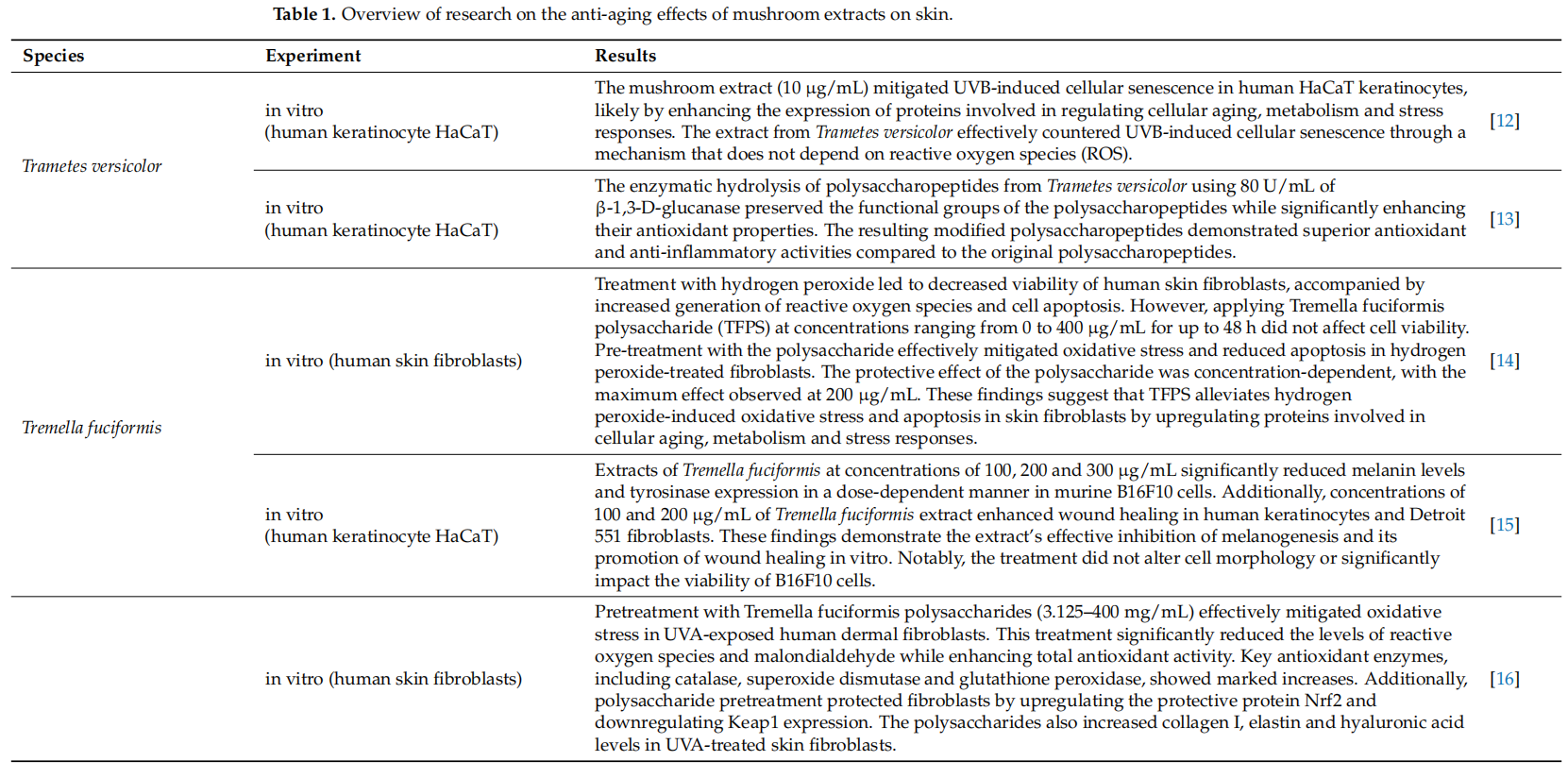
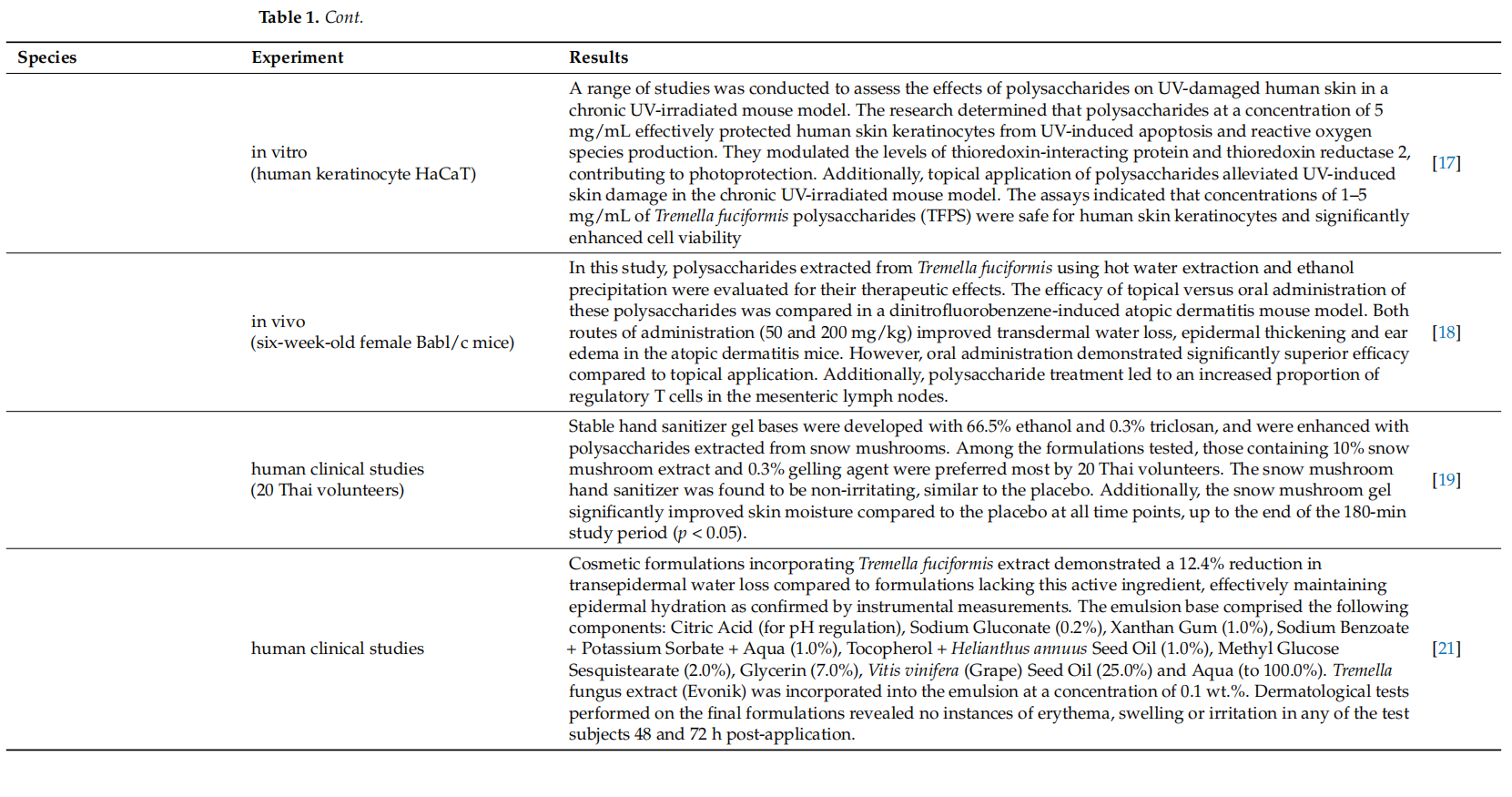
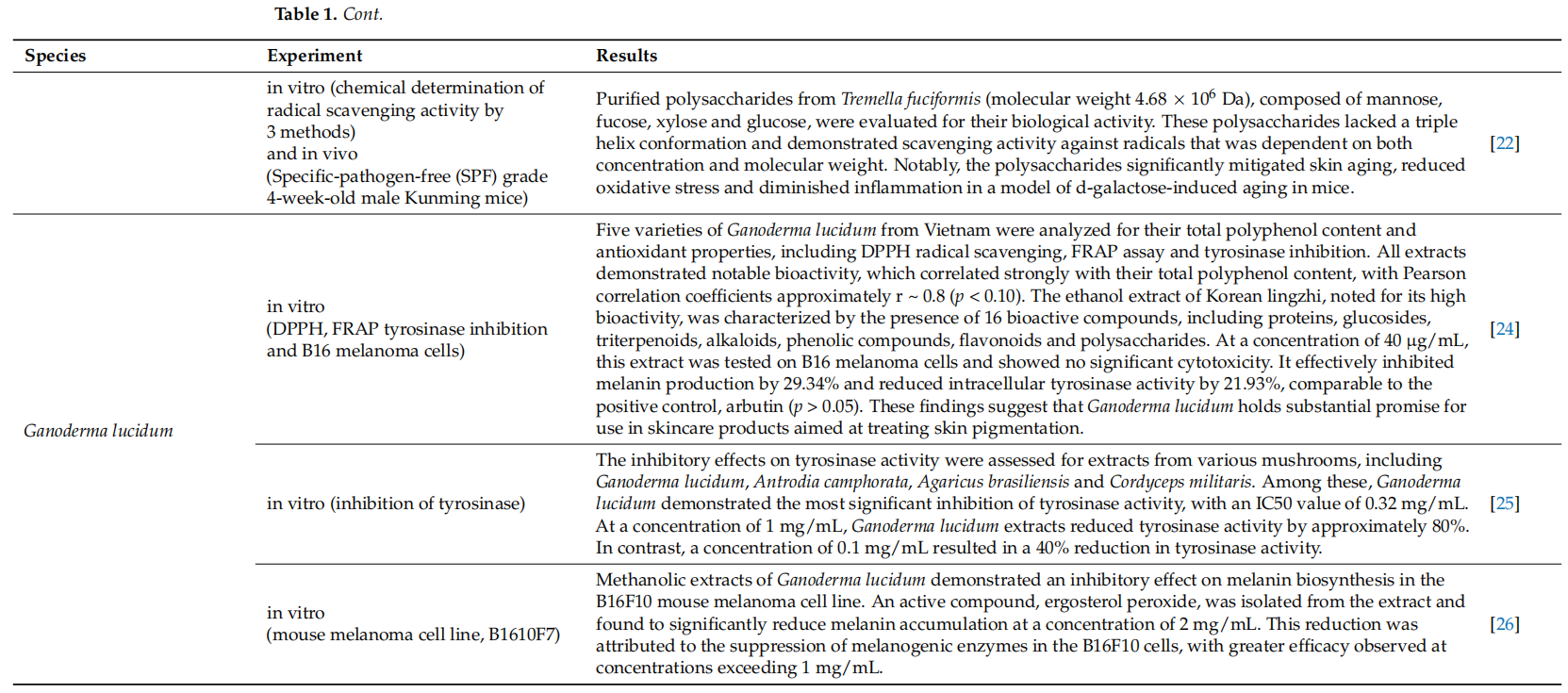
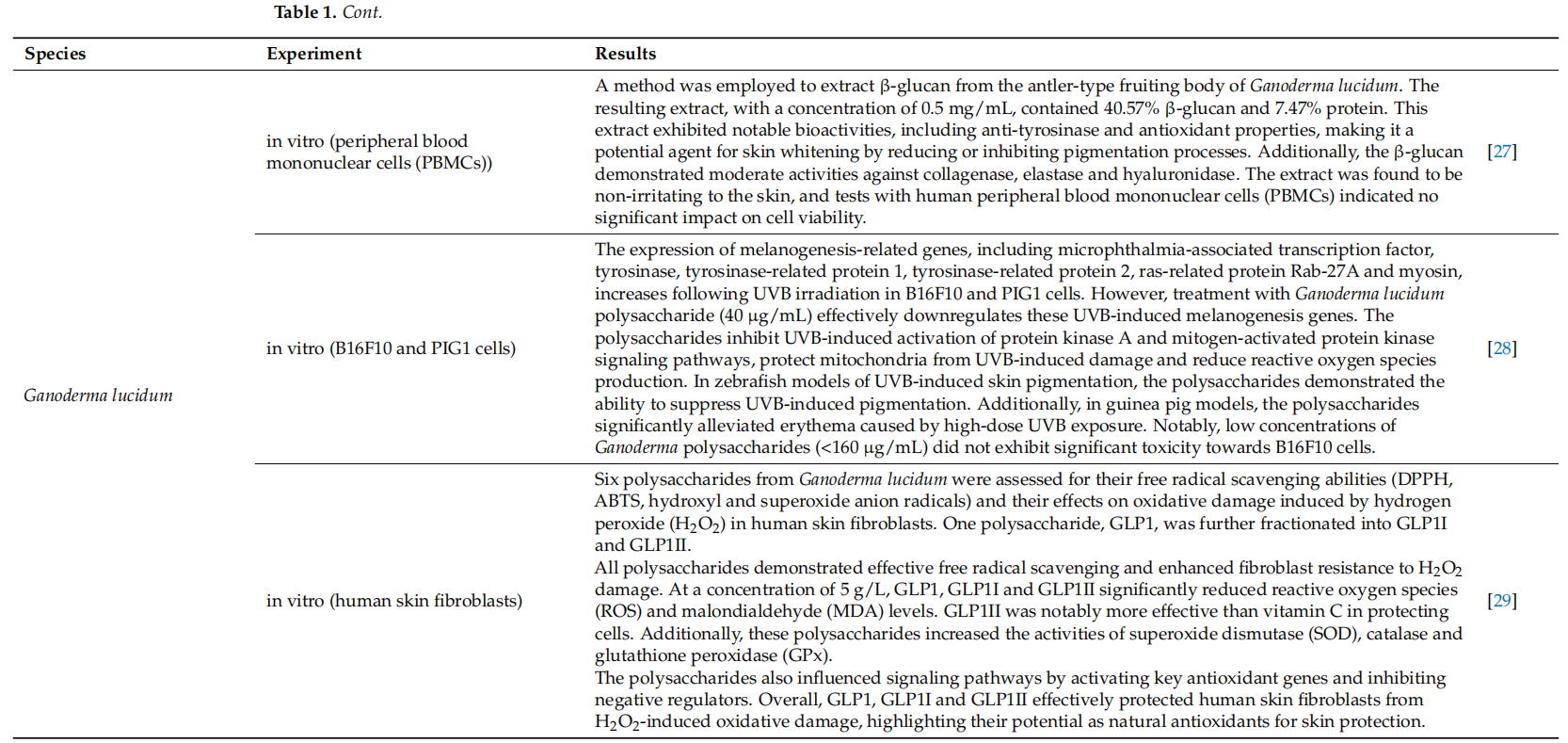
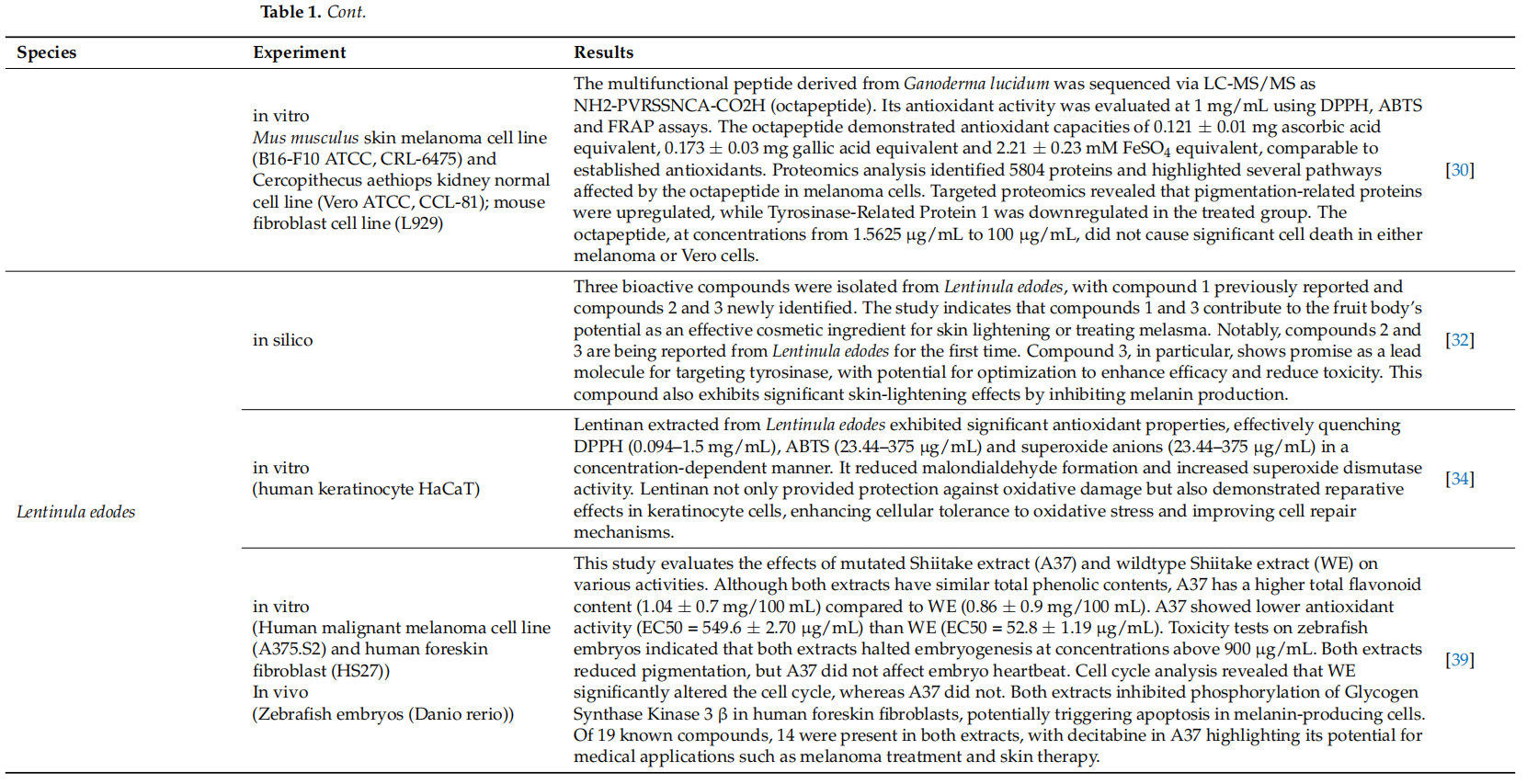
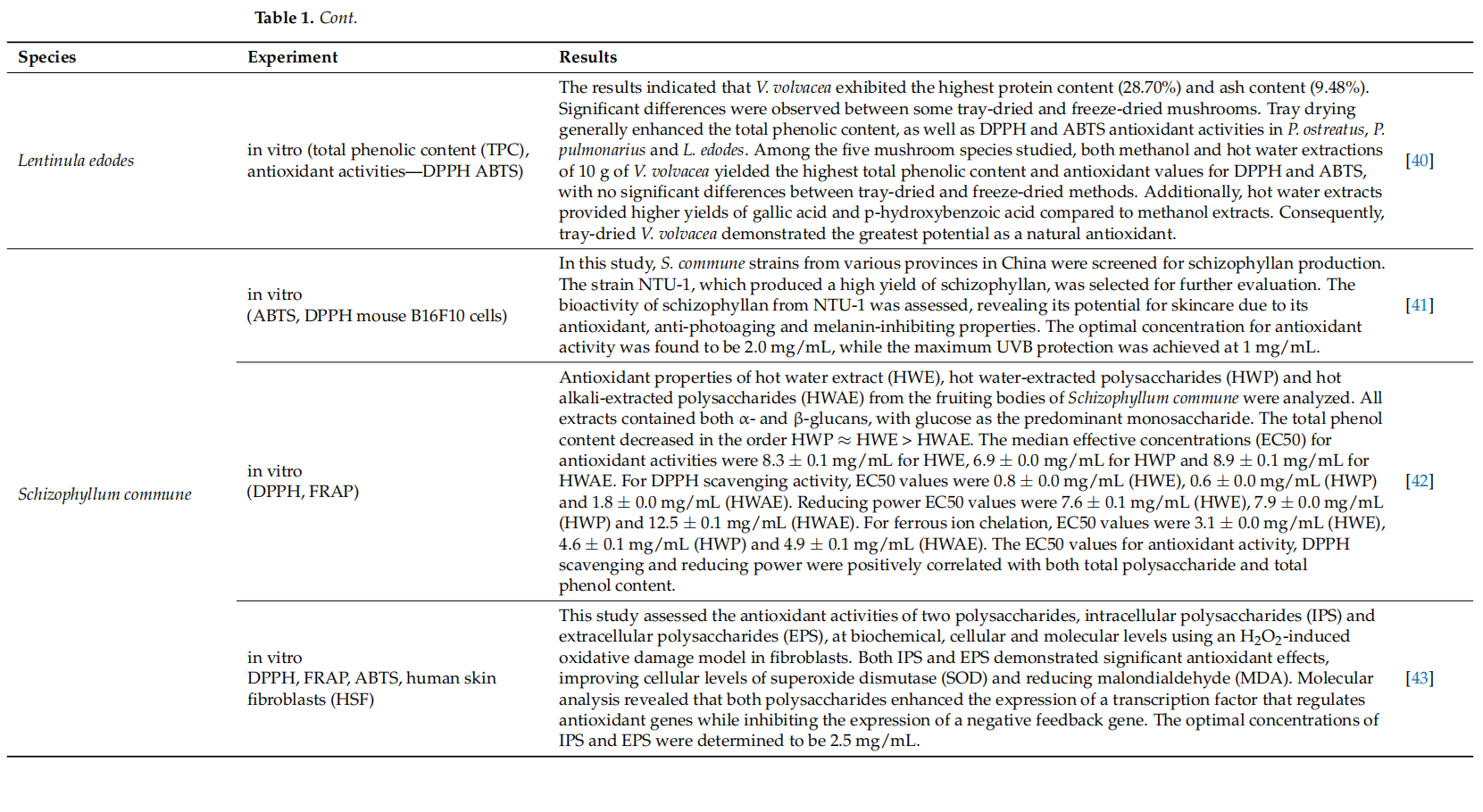
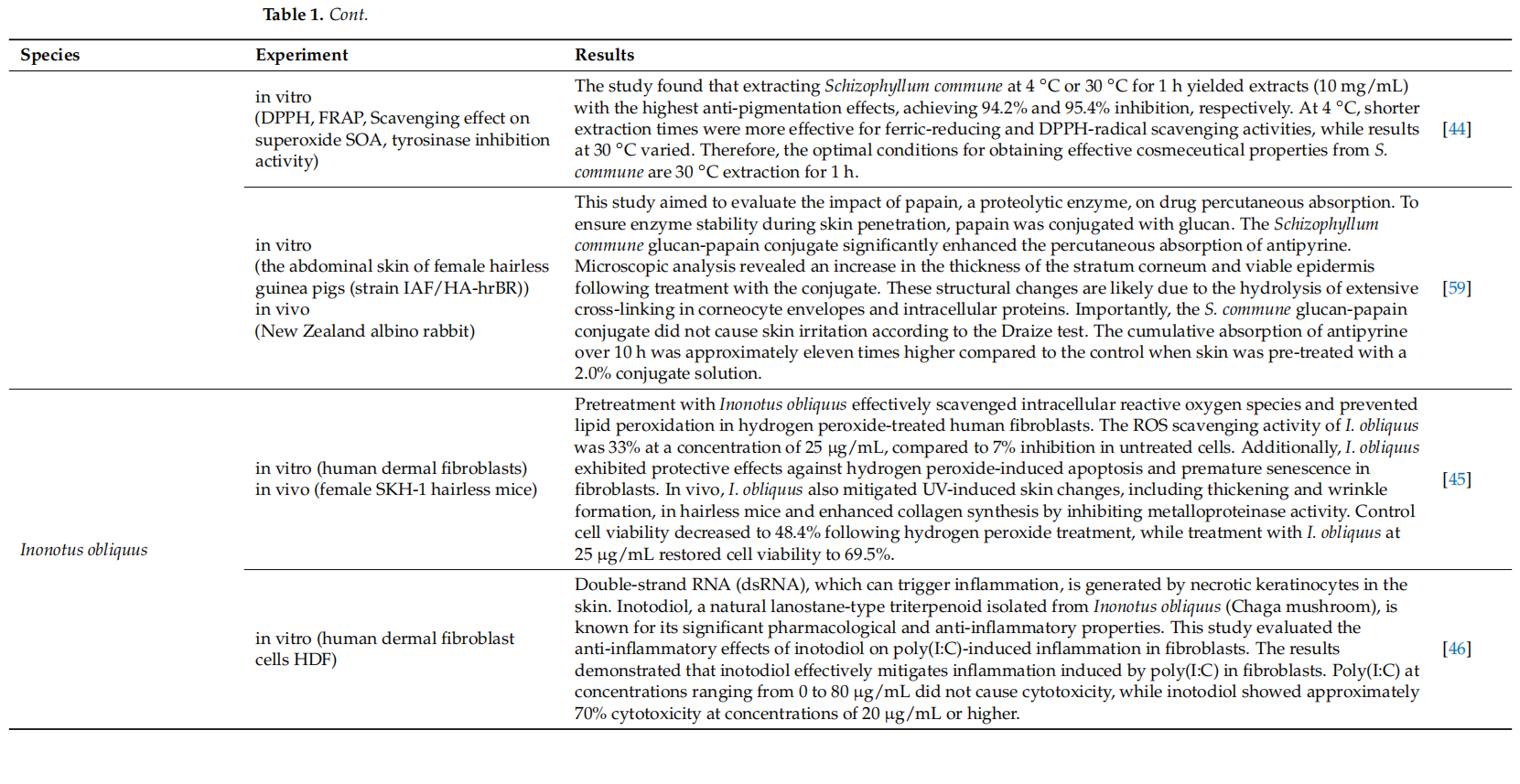
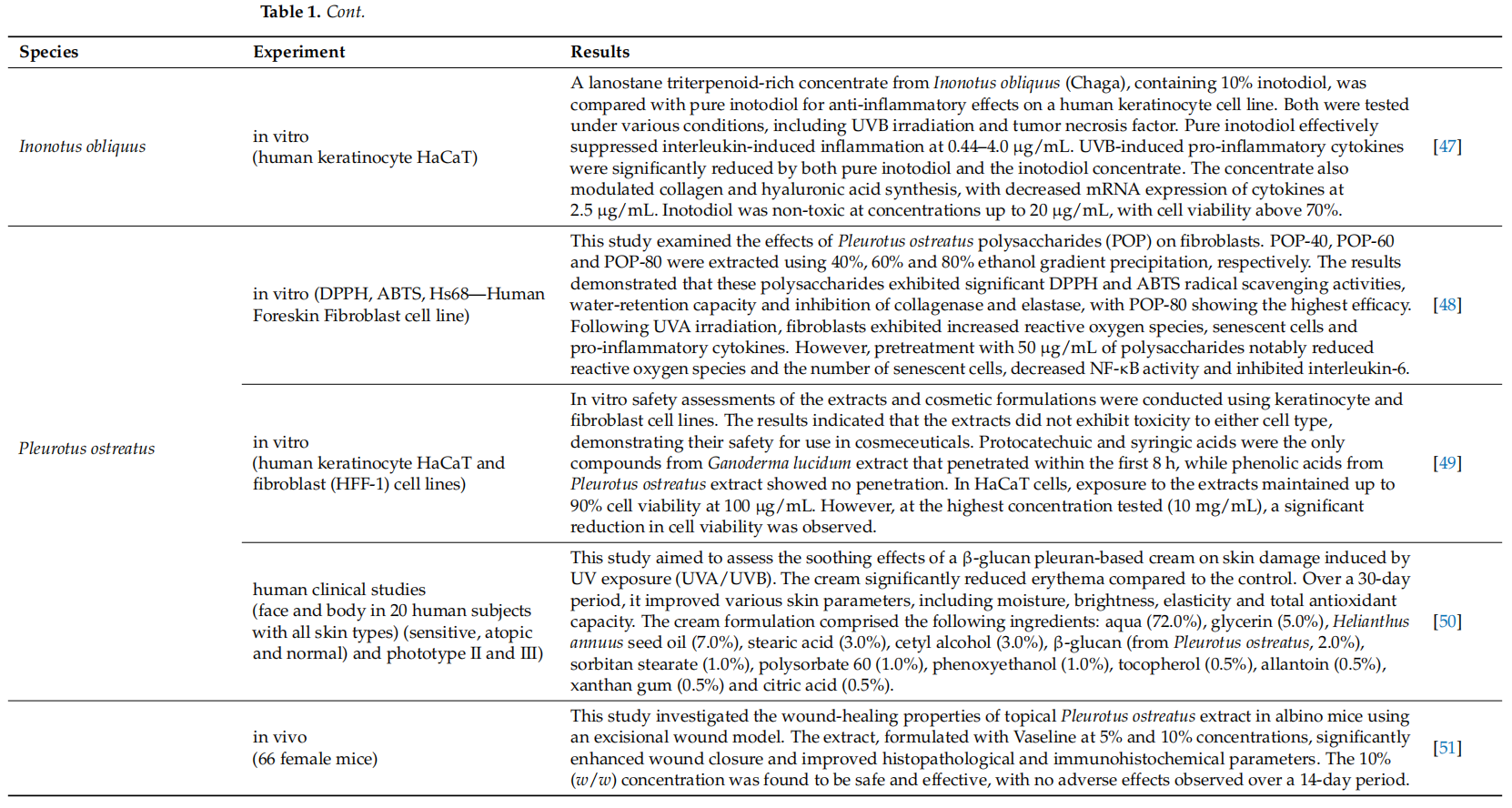
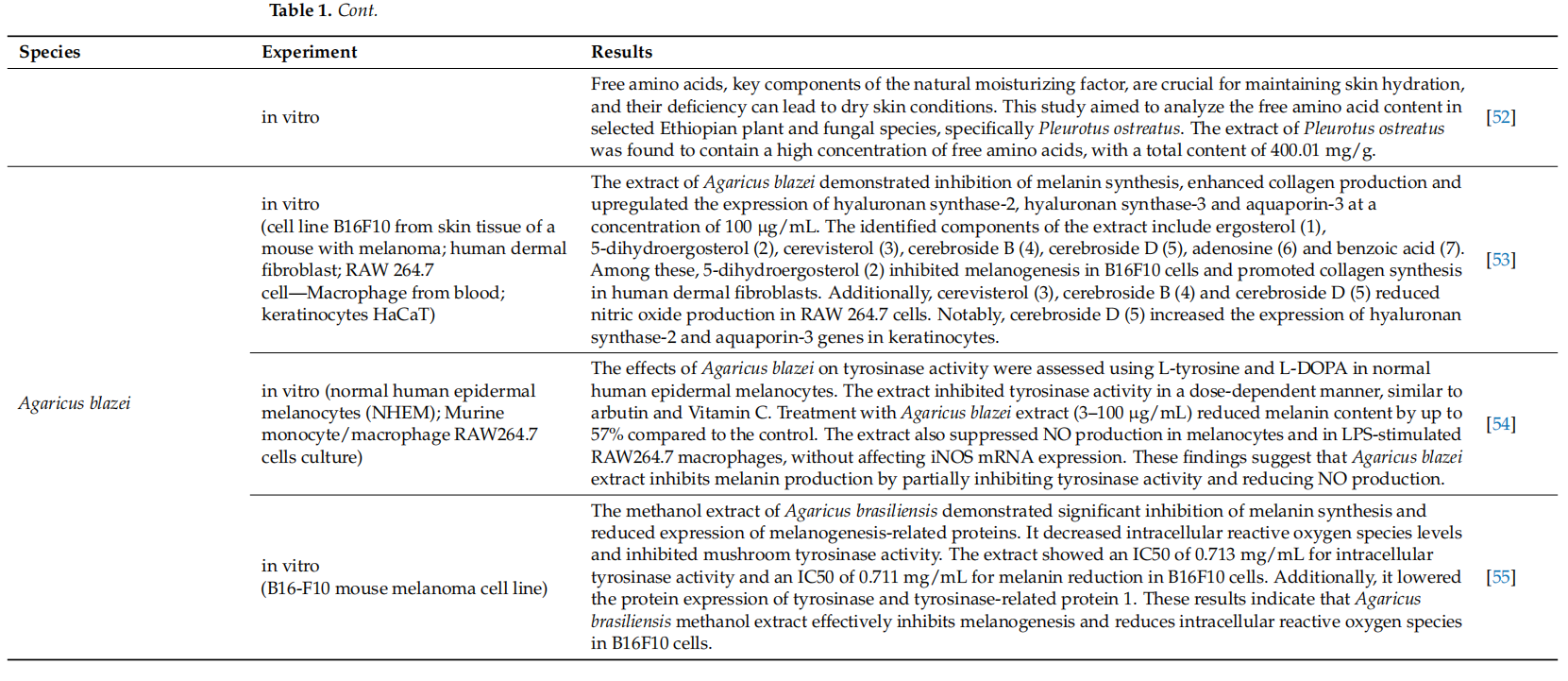
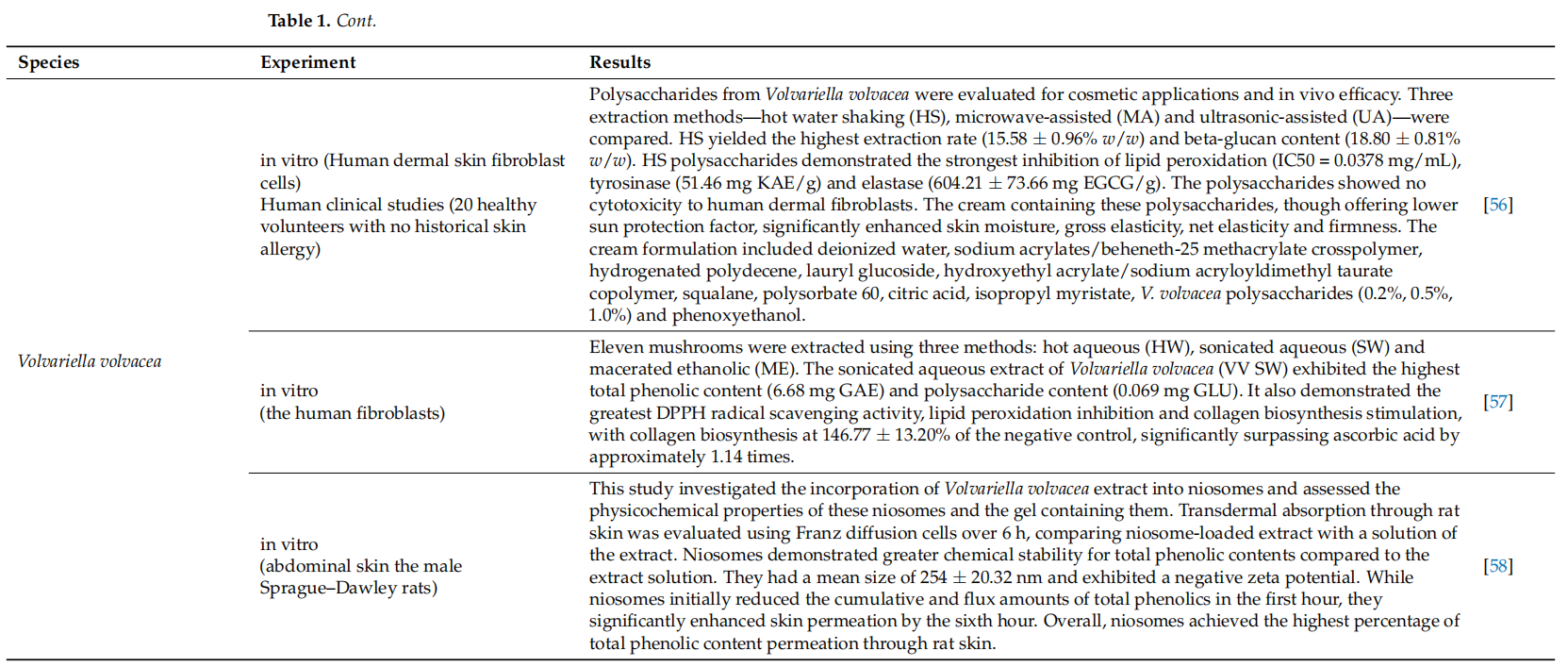
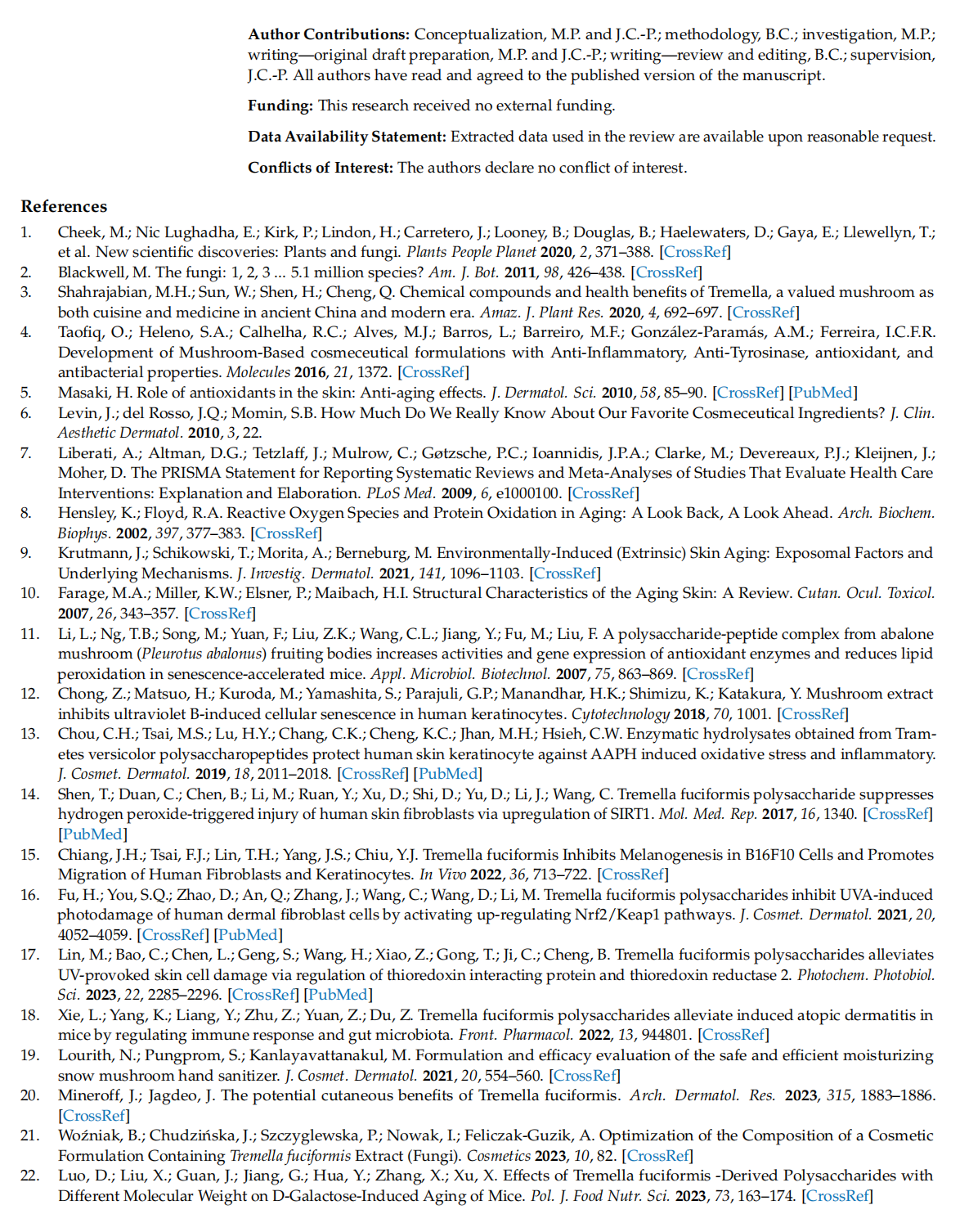
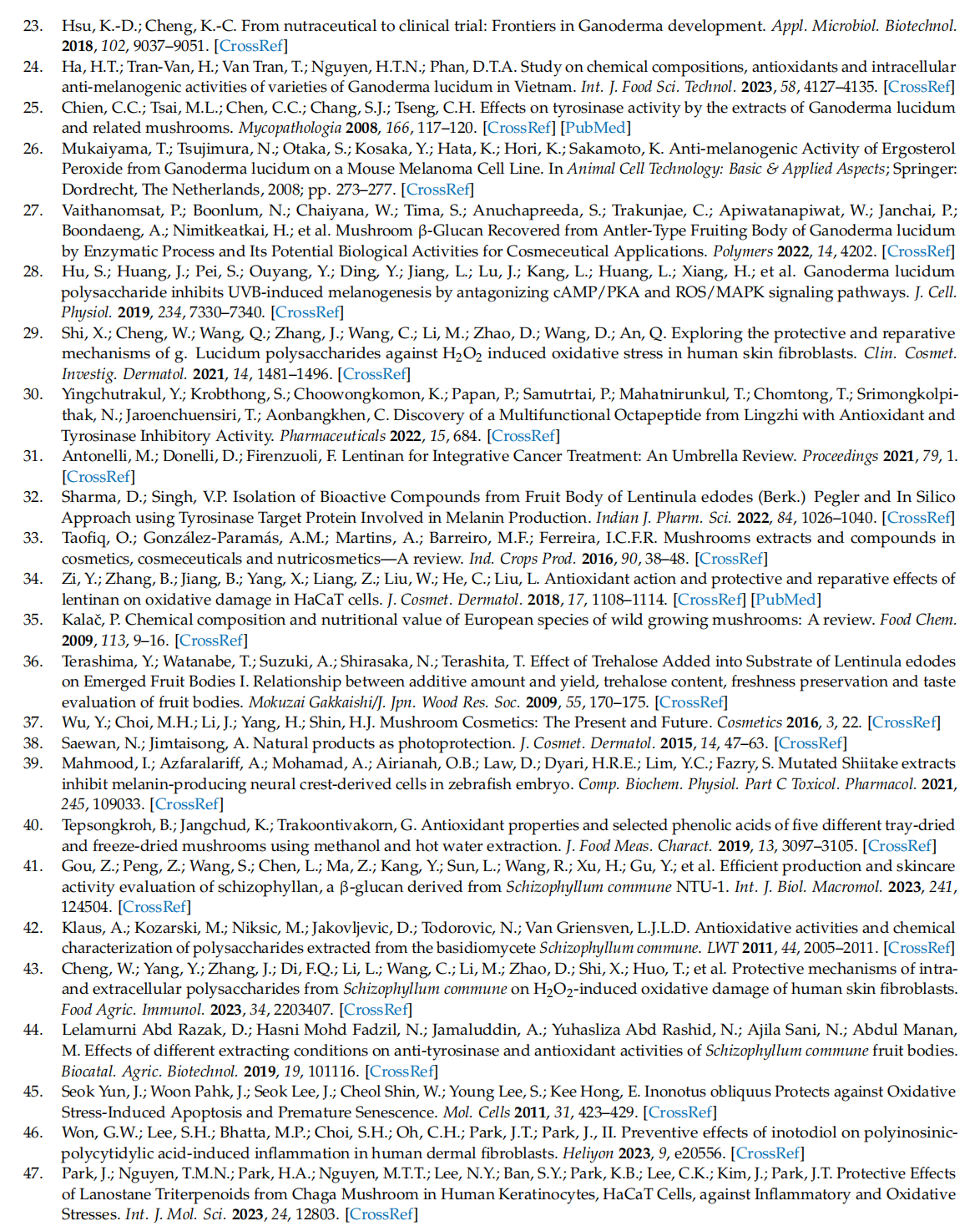
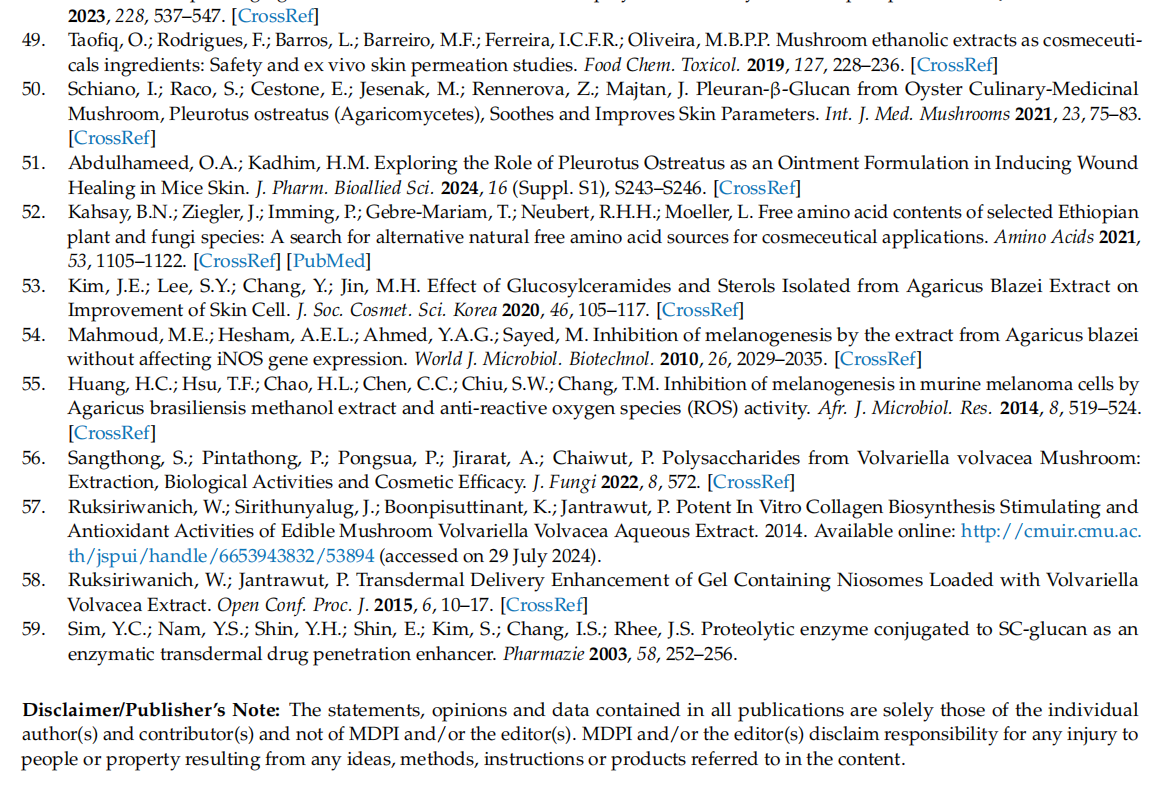
This article is excerpted from the Nutrients 2024, 16, 2810 by Wound World.
Maja Paterska 1 , Bogusław Czerny 2,3 and Judyta Cielecka-Piontek 4,*
1 Department of Pharmacology and Phytochemistry, Institute of Natural Fibres and Medicinal Plants, Wojska Polskiego 71b, 60-630 Poznan, Poland; 该Email地址已收到反垃圾邮件插件保护。要显示它您需要在浏览器中启用JavaScript。
2 Department of Stem Cells and Regenerative Medicine, Institute of Natural Fibres and Medicinal Plants, 62-064 Plewiska, Poland; 该Email地址已收到反垃圾邮件插件保护。要显示它您需要在浏览器中启用JavaScript。
3 Department of General Pharmacology and Pharmacoeconomics, Pomeranian Medical University in Szczecin, 71-210 Szczecin, Poland
4 Department of Pharmacognosy and Biomaterials, Faculty of Pharmacy, Poznan University of Medical Sciences, Rokietnicka 3, 60-806 Poznan, Poland
* Correspondence: 该Email地址已收到反垃圾邮件插件保护。要显示它您需要在浏览器中启用JavaScript。
Citation: Paterska, M.; Czerny, B.;
Cielecka-Piontek, J. Macrofungal
Extracts as a Source of Bioactive
Compounds for Cosmetical
Anti-Aging Therapy: A
Comprehensive Review. Nutrients
2024, 16, 2810. https://doi.org/
10.3390/nu16162810
Academic Editors: Arrigo Cicero and
Akiko Kojima-Yuasa
Received: 26 June 2024
Revised: 21 August 2024
Accepted: 22 August 2024
Published: 22 August 2024
Abstract: For centuries, mushrooms have been used as a component of skincare formulations. Environmental stresses and a modern lifestyle expose the skin to accelerated aging. To slow down this process, natural anti-aging skincare ingredients are being sought. In this review, 52 scientific publications about the effects of chemical compounds extracted from the fruiting bodies of macrofungi on skin cells were selected. The effects of extracts from nine species that are tested for anti-aging effects have been described. According to available literature data, macrofungi contain many polysaccharides, phenolic compounds, polysaccharide peptides, free amino acids, sterols, proteins, glycosides, triterpenes, alkaloids, which can have an anti-aging effect on the skin by acting as antioxidants, photoprotective, skin whitening, moisturizing, anti-inflammatory and stabilizing collagen, elastin and hyaluronic acid levels in the skin.
Keywords: anti-aging; Trametes versicolor; Schizophyllum commune; Tremella fuciformis; Pleurotus ostreatus; Agaricus subrufescens; Volvariella volvacea; Ganoderma lucidum; Letinula edodes; Inonotus obliquus; mushrooms; macrofungi
Suradwadee Thungmungmee1 , Boonchoo Sritularak2 , Nakuntwalai Wisidsri1 , Nattakan Kanana3 , Nattika Nimmano3
1 Faculty of Integrative Medicine, Rajamangala University of Technology Thanyaburi, Pathum Thani, Thailand;
2 Department of Pharmacognosy and Pharmaceutical Botany, Faculty of Pharmaceutical Science, Chulalongkorn University, Bangkok, Thailand;
3 Department of Pharmaceutics and Industrial Pharmacy, Faculty of Pharmaceutical Sciences, Chulalongkorn University, Bangkok, Thailand
Correspondence: Nattika Nimmano, Department of Pharmaceutics and Industrial Pharmacy, Faculty of Pharmaceutical Sciences, Chulalongkorn University, Bangkok, Thailand, Tel +66 0 2188399, Fax +66 0 2188401, Email 该Email地址已收到反垃圾邮件插件保护。要显示它您需要在浏览器中启用JavaScript。
Purpose: The study aimed to investigate in vitro anti-aging activities of 29 Dendrobium spp. and develop and characterize microemulsions (MEs) for topical application.
Methods: Antioxidant activity was determined using 2,2-diphenyl-1-picrylhydrazyl (DPPH), H2O2 scavenging, and ferric reducing antioxidant power (FRAP) assays. The anti-collagenase (MMP-1 and MMP-2) and anti-elastase activities were also evaluated.
Cytotoxicity and human intracellular reactive oxygen species (ROS) levels were determined using resazurin reduction and 2′,7′- dichlorofluorescin diacetate (DCFDA) assays, respectively. D. kentrophyllum extract-loaded microemulsion (DKME) was then prepared and optimized. The stability of DKME was studied using a heating-cooling cycle.
Results: D. kentrophyllum appeared to be the best candidate anti-aging agent because of its antioxidant, anti-collagenase, and antielastase activities. The extract was safe for human skin cells at a concentration of 6.25–100 μg/mL. It also decreased the intracellular ROS-induced ultraviolet B (UVB) irradiation compared to that in the control. DKME comprising Tween 80:ethanol (5:1), water, and isononyl isononanoate showed a suitable appearance, droplet size, polydisperse index, zeta potential, pH, and viscosity. This formulation demonstrated desirable physical and chemical stability, with non-cytotoxic effects.
Conclusion: DKME is considered a promising anti-aging product. However, an in vivo study of this optimized formulation might be evaluated in further study for anti-aging purposes.
Keywords: reactive oxygen species, anti-aging activities, Dendrobium kentrophyllum, microemulsion



